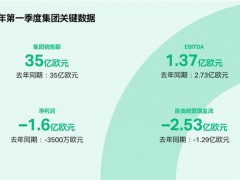據(jù)美國(guó)鉆井網(wǎng)站2022年7月28日?qǐng)?bào)道,美國(guó)石油學(xué)會(huì)(API)和美國(guó)勘探與生產(chǎn)委員會(huì)(AXPC)日前發(fā)布了一份新的研究分析報(bào)告,報(bào)告顯示了美國(guó)豐富的原油資源對(duì)國(guó)內(nèi)使用和對(duì)全球出口的顯著和不斷增長(zhǎng)的經(jīng)濟(jì)效益。
這項(xiàng)研究分析工作由美國(guó)國(guó)防部智能應(yīng)急基金(ICF)進(jìn)行,ICF分析了自2015年12月同意解除美國(guó)原油出口禁令以來的6年時(shí)間的原油出口和收入情況。研究分析發(fā)現(xiàn),開放原油出口市場(chǎng)促進(jìn)了美國(guó)石油和天然氣的開發(fā),在6年的時(shí)間里,全球油價(jià)平均下降了1.93美元/桶,而美國(guó)GDP增加了1610億美元凈收益,美國(guó)平均每年增加了近5萬個(gè)就業(yè)崗位。
API總裁兼首席執(zhí)行官邁克·薩默斯表示:“美國(guó)在能源方面的領(lǐng)導(dǎo)地位不僅為國(guó)家?guī)碇卮罄妗苿?dòng)美國(guó)經(jīng)濟(jì)和國(guó)內(nèi)就業(yè),提供可靠的能源,幫助降低能源價(jià)格壓力,而且還加強(qiáng)了全球安全,支持了我們的盟友。”
薩默斯表示:“美國(guó)能源出口為全球市場(chǎng)提供了至關(guān)重要的穩(wěn)定,支持我們?cè)谑澜绺鞯匾蕾嚸绹?guó)能源滿足其需求的盟友,并加強(qiáng)美國(guó)國(guó)內(nèi)的能源安全。如果美國(guó)不出口能源,就為那些不穩(wěn)定的國(guó)家或那些環(huán)境標(biāo)準(zhǔn)不那么嚴(yán)格的國(guó)家打開大門,讓它們填補(bǔ)空缺并從中獲益。”
這項(xiàng)新研究分析了自美國(guó)國(guó)會(huì)允許原油出口以來,美國(guó)石油和天然氣市場(chǎng)發(fā)生的變化,并將其與美國(guó)石油出口禁令保持不變的假設(shè)情況進(jìn)行了比較。
“正如分析顯示,2015年解除原油出口禁令節(jié)省了美國(guó)人的燃油錢,支持了數(shù)千個(gè)高薪的美國(guó)就業(yè)崗位,并減少了美國(guó)對(duì)外國(guó)石油的依賴。當(dāng)美國(guó)受到油價(jià)的傷害時(shí),很明顯,增加全球原油供應(yīng)對(duì)降低國(guó)內(nèi)能源價(jià)格和加強(qiáng)全球能源安全至關(guān)重要。”AXPC首席執(zhí)行官安妮·布拉德伯里如是說。
其好處包括美國(guó)消費(fèi)者在精制石油產(chǎn)品和天然氣方面的支出減少920億美元。美國(guó)石油產(chǎn)量增加擴(kuò)大了全球石油供應(yīng),降低了全球原油和成品油價(jià)格。由于石油產(chǎn)品的自由貿(mào)易,美國(guó)的燃料消費(fèi)者從這些較低的石油產(chǎn)品價(jià)格中受益。
API表示,燃料成本降低給美國(guó)消費(fèi)者帶來的好處和石油生產(chǎn)商收入增加給美國(guó)煉油商帶來的利潤(rùn)損失超過了利潤(rùn)損失,過去6年原油出口為美國(guó)GDP帶來了1610億美元的凈收益。原油出口也使美國(guó)貿(mào)易差額增加了1780億美元。
取消原油出口禁令增加了美國(guó)的就業(yè)崗位,包括油氣上游行業(yè)的直接就業(yè)崗位,如石油工程師和地質(zhì)學(xué)家、工業(yè)機(jī)械安裝和維護(hù)、井架操作員、旋轉(zhuǎn)鉆機(jī)操作員、鉆井平操作員和服務(wù)設(shè)備操作員。 政策變化還創(chuàng)造了間接和誘發(fā)就業(yè)。總的來說,美國(guó)就業(yè)崗位平均年增4.8萬個(gè)。
美國(guó)原油產(chǎn)量也有所上升,這使得美國(guó)國(guó)內(nèi)油價(jià)與國(guó)際基準(zhǔn)接軌,刺激了更多的鉆井活動(dòng),導(dǎo)致原油產(chǎn)量增加,以及來自產(chǎn)油井的伴生天然氣和天然氣液體產(chǎn)量增加。美國(guó)原油產(chǎn)量在出口禁令之后增加了18億桶。
李峻 編譯自 美國(guó)鉆井網(wǎng)站
原文如下:
U.S. Crude Oil Exports Add $161 Bn To GDP Since Ban Lift
The American Petroleum Institute (API) and the American Exploration and Production Council (AXPC) have released a new analysis demonstrating the significant and growing economic benefits of America’s abundant crude oil resources for both domestic use and global export.
The study, conducted by ICF, analyzed the six-year period since a bipartisan Congressional majority lifted a ban on exporting U.S. crude oil in December 2015. The study found that enabling open markets increased oil and natural gas development in America, which, over the six-year period, reduced global oil prices by an average of $1.93 per barrel, added $161 billion to U.S. GDP, and increased jobs in the U.S. by nearly 50,000, on average.
“American energy leadership doesn’t just deliver significant benefits to Americans – fueling the U.S. economy and American jobs, delivering reliable energy, and helping put downward pressure on prices, but it also strengthens global security and supports our allies,” said API President and CEO Mike Sommers.
“U.S. energy exports provide critical stability to the global market, support our allies across the world who depend on American energy to meet their needs and strengthen American energy security here at home. If the U.S. is not exporting energy, it leaves the door open for unstable nations or those with less stringent environmental standards to fill the void and reap the benefits,” he added.
The new study analyzes the changes that have occurred in U.S. oil and natural gas markets since Congress enabled crude oil exports compared to a hypothetical scenario where the ban on U.S. oil exports remained in place.
“As this analysis shows, lifting the ban on crude exports in 2015 saved Americans money at the pump, supported thousands of good-paying American jobs, and reduced our country’s dependence on foreign oil. At a time when Americans are hurting from the price at the pump, it’s clear that increasing the global supply of crude oil is critical to lower energy prices here at home and greater energy security around the globe,” said AXPC CEO Anne Bradbury.
The benefits include decreased U.S. consumer expenditures on refined products and natural gas by $92 billion. Higher U.S. oil production expanded the global oil supply, reducing global crude oil and refined product prices. Because there is free trade in petroleum products, U.S. fuel consumers have benefited from these lower product prices.
The API said that the benefits of lower fuel costs for U.S. consumers and higher revenues for U.S. oil producers outweighed margin losses for U.S. refiners, resulting in a net benefit of $161 billion in U.S. GDP. The export of crude also improved the U.S. Trade Balance by $178 billion.
Lifting the crude export ban has increased U.S. employment, including direct jobs in the Upstream oil & gas sector, such as petroleum engineers and geologists, industrial machinery installation and maintenance, derrick operators, rotary drill operators, roustabouts, and service unit operators. The policy change has also created indirect and induced jobs. In total, U.S. employment rose by an average of 48,000 jobs.
Production of U.S. crude oil production also rose, and it allowed U.S. domestic oil prices to converge with international benchmarks, spurred more drilling activity leading to higher crude oil production, as well as higher production of associated natural gas and NGLs that come from oil wells. U.S. crude oil production, post export ban, rose by 1.8 billion barrels.
免責(zé)聲明:本網(wǎng)轉(zhuǎn)載自其它媒體的文章及圖片,目的在于弘揚(yáng)石化精神,傳遞更多石化信息,宣傳國(guó)家石化產(chǎn)業(yè)政策,展示國(guó)家石化產(chǎn)業(yè)形象,參與國(guó)際石化產(chǎn)業(yè)輿論競(jìng)爭(zhēng),提高國(guó)際石化產(chǎn)業(yè)話語權(quán),并不代表本網(wǎng)贊同其觀點(diǎn)和對(duì)其真實(shí)性負(fù)責(zé),在此我們謹(jǐn)向原作者和原媒體致以崇高敬意。如果您認(rèn)為本站文章及圖片侵犯了您的版權(quán),請(qǐng)與我們聯(lián)系,我們將第一時(shí)間刪除。







